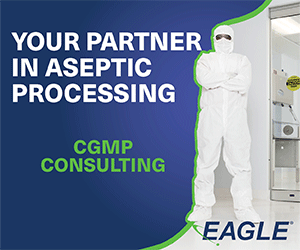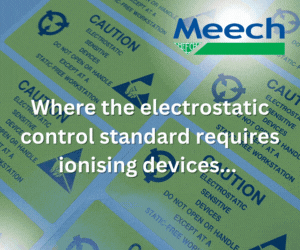Agienic's antimicrobial materials are granted three US patents
As well as being effective against a broad range of microbes, they can be tailored for incorporation in nearly any matrix material, whether solid or liquid, the firm says
Agienic, a developer of antimicrobial technology, has been granted three US patents on its novel copper-based antimicrobial materials.
The Tucson, Arizona-based firm says these materials provide 'unprecedented antimicrobial activity at low cost' and are 'markedly more effective' than products currently sold to combat bacteria (Staphylococcus, Streptococcus, Pseudomonas, Salmonella, Mycobacteria and E. coli), viruses, moulds and yeasts.
As well as being effective against a broad range of microbes, they can also be tailored for incorporation in nearly any matrix material, whether solid or liquid, the firm says.
'Our technology is based on particles of cuprous compounds of low water solubility with modified surface chemistry (functionalised particles) which can be tailored to specific matrices,' said Anoop Agrawal, VP of Technology at Agienic.
'This allows us to disperse these particles in a variety of liquid and solid matrices providing both high compatibility and high efficacy, which allows one to use a fraction of the material and still achieve strong antimicrobial properties against a broad range of microbes (Gram-positive and Gram-Negative bacteria, viruses, mycobacteria, fungi, etc).
'Further, since cuprous is the most potent form of antimicrobial copper it also provides superior efficacy as compared with many other copper materials such as copper metal and its alloys. In addition, our preferred materials impart minimal coloration to the products that they are incorporated into.'
Agrawal added: 'This technology may be used to make products for surface disinfection where the surfaces continue to provide self-disinfecting surface even after the disinfectant dries on the surface. It may be incorporated in several polymeric matrices where they may be used as coatings, or be incorporated into moulded and extruded polymeric products.'
Agienic expects its exclusive materials will be suitable for applications in hospitals, cosmetics and personal hygiene products, as well as the petroleum and natural gas industry.
Being granted the patents protects Agienic's technology, which can be used to create self-disinfecting surfaces – i.e. surfaces that can kill microbes that come into contact with them weeks or even months after being treated.
Used in coatings, Agienic's materials offer the promise of reducing the spread of infectious microbes in hospitals and in the community, the firm said.
These patents not only protect our core antimicrobial technology, they also protect key additives
Agienic's materials can also provide antimicrobial protection in wound care, are effective against the fungi responsible for dandruff and nail infections, and can also provide odour control in textiles and deodorants.
'These patents not only protect our core antimicrobial technology, they also protect key additives that permit the efficient manufacture of our materials using an environmentally-friendly process,' said Agrawal.
Kelly Bright, an environmental microbiologist from the University of Arizona said the effectiveness of these antimicrobial materials against a wide range of micro-organisms allows for their use in a variety of commercial applications.
Agienic CEO Donald Uhlmann, former Cabot Professor of Materials at MIT, said the materials not only provide protection against multi-drug-resistant microbes, but are also effective against the anaerobic bacteria that degrade equipment in oil and gas production.




